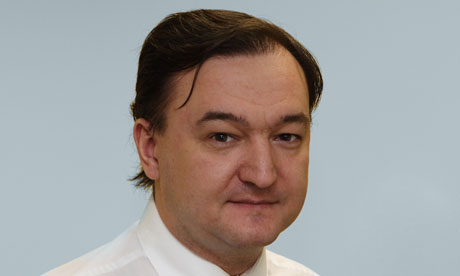By Alexandra Halsey-Storch
Impunity Watch Reporter, Europe
MOSCOW, Russia–On February 7, 2012, The New York Times announced that Russia plans to reopen for trial the prosecution of Russian attorney Sergei L. Magnitsky for alleged tax evasion even though the defendant died in November 2009.

Magnitsky’s trial would be the first posthumous prosecution in Russian legal history.
The circumstances surrounding Magnitsky’s death have been vague and elusive from the beginning. Some officials, like Russia’s President, urged for law reform while Russian law enforcement lauded and issued awards to the police officials who handled the case. This much is clear: Magnitsky testified against the Russian Interior Ministry (a governmental agency responsible for policing, national security and investigation economic crimes, like tax invasion), stating that they used his employer, Hermitage Capital, to embezzle $230 million from the Russian treasury by filing false corporate tax returns. After testifying against the Interior Ministry, Magnitsky was detained beginning in 2008 “on suspicion of helping Hermitage Capital evade $17.4 million dollars in taxes.”
A year after being detained, Magnitsky died. Government officials iterated that his death came as a result of heart disease and active hepatitis. Appropriate medical care would have allowed for the diagnosis of the diseases before he become fatally ill; nevertheless, on the day of his death he received no such medical treatment.
Moreover, a human rights panel that advises the Russian President, Dmitri A. Medvedev, published a subsequent report arguing that Magnitsky was beaten and suffered severe human rights abuses while in detention: “Highly placed investigators and prison officials share responsibility for his death in state custody.” Furthermore, forensic experts maintained that Magnitsky’s body “showed the impact of a blunt hard object (or objects) not long before his death, and legal documents reveal that a rubber baton was used on Magnitsky” at a clinic where he was taken for treatment after suffering abdominal pain and vomiting.
The report further found that “among the members of the investigative team working on the case against Magnitsky…were Interior Ministry officials against whom he had testified in [the] $230 million fraud case the year before.”
Magnitsky’s incarceration and ensuing death as a result of inhumane treatment has drawn international criticism over Russia’s notorious human rights record; however, governments, like the United States have been slow to act. Last year the State Department “quietly” issued visa bans on the Russian Officials linked to Magnitsky’s death, but the administration has otherwise treaded carefully.
Republican and Democratic lawmakers alike have drafted the Sergei Magnitsky Rule of Law Accountability Act of 2011, targeting Magnitsky’s captors as well as any other Russian officials “responsible for extrajudicial killings, torture, or other gross violations of human rights.” Despite their efforts, the State Department said in a statement on February 9, 2012 that, “senior Russian government officials have warned us that they will respond asymmetrically if legislations passes. Their argument is that we cannot expect them to be our partner in supporting sanctions against countries like Iran, North Korea, and Libya, and sanction them at the same time.”
Furthermore, in response to the Magnitsky Accountability Act, the Russian Duma drafted legislation “that would institute similar travel bans and asset freezes for U.S. Officials whose actions Russia deems in violation of the rights of Russian citizens arrested abroad and brought to the United States for trial…” therefore, U.S. national security interests would be “affected” by the passage of the proposed legislation.
Though the State Department has spoken out against a rather noble piece of legislation, spokeswoman Victoria Nuland did address the proposed trial of the deceased Magnitsky, iterating that “pursuing criminal charges against Sergei Mangitsky serves no purpose other than to deflect attention away from the circumstances surrounding this tragic case. We continue to call for Russian authorities to bring those responsible for Mr. Magnitsky’s death to justice.”
For more information please visit:
The New York Times – Russia Plans to Retry Dead Lawyer Sergei L. Magnitsky in Tax Case – 7 Feb. 2012
The New York Times – Poor Medical Care Led to Lawyer Magnitsky’s Death, Russia Admits – 4 July 2011
The Library of Congress – Bill Text S.1039.IS – 19 May 2011
The New York Times – Poor Medical Care Led to Lawyer Magnitsky’s Death, Russia Admits –